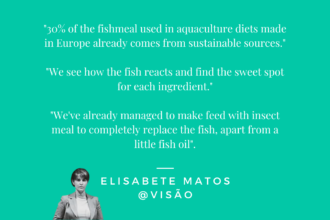Corporate Sustainability Reporting Directive – but what is it?
The Corporate Sustainability Reporting Directive (CSRD) plays a crucial role in promoting transparency regarding environmental concerns. The CSRD imposes an obligation on corporate entities to incorporate information on sustainability into their financial reports, thereby reinforcing greater environmental and sustainable responsibility on the part of organisations.
Published on 14 December 2022 and coming into force on 5 January 2023, the CSRD Directive foresees a gradual implementation, starting with listed companies (except for micro-enterprises), large companies within the EU and non-EU companies with subsidiaries in the EU (see summary table below). The CSRD report should include information on the business model and corporate strategy for the transition to a more sustainable economy, targets to be achieved and their timetable, measures to identify and monitor the environmental impacts of the company’s actions, etc.
The recent implementation of reporting standards in the European Union (EU) is characterised by its more rigorous and transparent nature, allowing customers, suppliers, and other stakeholders in the value chain to assess the environmental impact of business activities and understand the mitigation measures adopted. As a guarantee of the reliability of the information contained in these reports, they will be independently audited and certified.
In this way, the CSRD is seen as a tool for assessing corporate responsibility in relation to environmental issues, which can be used by clients or business partners to select partners and suppliers more carefully than similar ones.
For investors, the CSRD will provide a more comprehensive analysis of the company’s activities, allowing them to assess risks and opportunities taking environmental and sustainability factors into account.
On the other hand, and no less importantly, this report will allow the end consumer to have information on the environmental performance and awareness of companies, enabling them to make more conscious and informed decisions.
With the implementation of these reports, the EU aims to raise awareness of environmental issues among the business community, giving them the same level of importance as the current reporting of financial results and preventing unfounded claims – greenwashing.
It is expected that, over time, this awareness will have an impact on the business community and pressure it to adapt and implement mitigation measures, which will inevitably lead to a need for adaptation, modernisation, and innovation in all those involved in the value chain.
Sustainability will become as important as financial issues and will have to be treated and reported with the same degree of rigour, demand, and transparency, with a direct impact on the company’s reputation and credibility.
In the future, only those who accept this paradigm shift and embrace sustainability and environmental protection as an integral part of their business will have a place in the green business world.
| Phases of the gradual implementation of the CSRD | From January 1st, 2024: – Companies listed on the stock market (except micro-enterprises), Large Companies (> 500 employees) of public utility already obliged to report non-financial information – must report in 2025 information relating to 2024 From January 1st, 2025: – Large companies (>250 employees) and/or €40 M in turnover and/or total assets of €20 M From January 1st, 2026: – Listed SMEs and other companies NOTE: Small and medium-sized companies may not report until 2028. |
| Companies required to submit a report (as of next year) | Companies listed on the stock market Large companies and parent companies with at least two of the requirements: – Balance sheet total of more than €20 M – Net turnover of more than €40 M – More than 250 employees Non-EU companies with a subsidiary in the EU: Net turnover of €150 M or more Insurance companies Financial institutions |
| Exceptional cases (do not require a report) | Subsidiaries of EU companies whose data is already reported in the major company’s report. Subsidiaries of non-EU companies whose data is already reported in the major company’s report, provided it complies with the European Sustainability Reporting Standards. |





